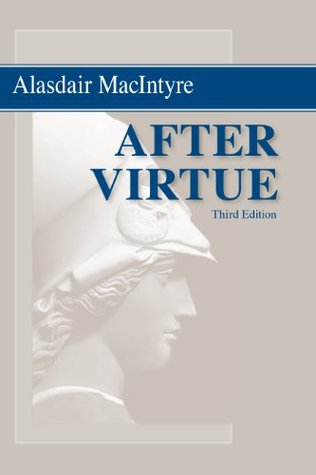when Nietzsche sought to indict the making of would-be objective moral judgments as the mask worn by the will-to-power of those too weak and slavish to assert themselves with archaic and aristocratic grandeur, and when Sartre tried to exhibit the bourgeois rationalist morality of the Third Republic as an exercise in bad faith by those who cannot tolerate the recognition of their own choices as the sole source of moral judgment, both conceded the substance of that for which emotivism contended.
Welcome back. Just a moment while we sign you in to your Goodreads account.


